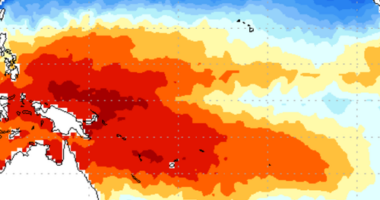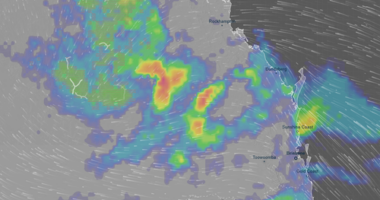Share this @internewscast.com
Laine Bradley was only 10 months old when she came down with measles—too young to have received the vaccine.
Her mother, Cecily Johnson, had taken her on a trip from their home in Western Australia to Sydney.
“I wasn’t aware of any outbreak. Had I known, I would have had her vaccinated earlier,” Johnson explained.

Johnson is revisiting Laine’s story as Australia faces its highest number of measles cases in six years.
The last significant surge occurred in 2019, with 284 cases reported throughout the year.
Earlier this month, alerts were issued in Queensland and Western Australia, linked to travelers returning from Bali with infections.
Measles was considered to have been eradicated in Australia in 2014, when The World Health Organisation (WHO) declared Australia free of the disease.
Australia’s thorough childhood vaccination program has largely kept any subsequent outbreaks to a minimum over the intervening years.
Measles is one of the most contagious human diseases and WHO recommends at least 95 percent of the total population receive two doses of the measles vaccine in childhood to achieve “herd immunity”.
In Australia, doses of the measles vaccine are given at 12 months and 18 months.
However, since the pandemic that number has been steadily declining.
In 2024, there were 92.14 percent of 1-year-old’s fully vaccinated and 90.44 percent of 2-year-olds.
“In terms of overall herd immunity, the impacts at this stage may be relatively small. But measles immunity gaps are much greater in some parts of Australia, such as the north coast of New South Wales and the Gold Coast in Queensland,” the pair wrote.
“Measles immunity is also lower in some adults, because vaccination rates were lower when they were children. A second dose of measles vaccine was not added to the National Immunisation Program until 1992.”
Australia is not the only country to see increased rates of measles. In the US, cases of measles are at their highest level since 2000, when the disease was declared eliminated there.
“Amid a global resurgence of measles and more cases in travellers, supporting international efforts to boost immunisation rates in all countries is critical. This will further reduce the chance of outbreaks here,” Beard and Macartney said.












